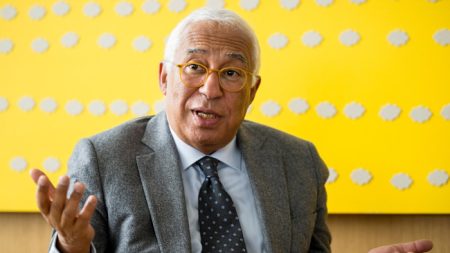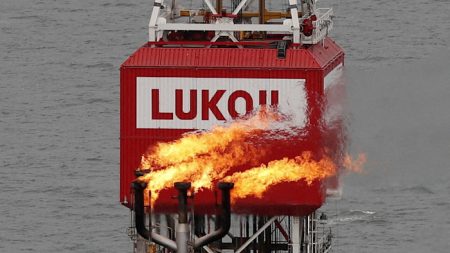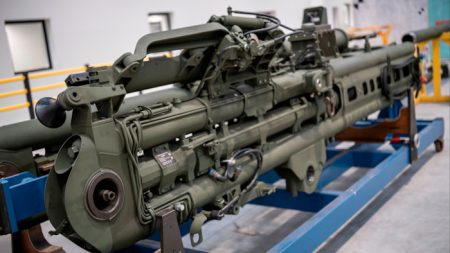Stay informed with free updates
Simply sign up to the Artificial intelligence myFT Digest — delivered directly to your inbox.
Nvidia shares rebounded on Wednesday after Microsoft indicated it would continue to invest heavily in the technical infrastructure underpinning artificial intelligence, highlighting investors’ sensitivity to the spending plans of a handful of Big Tech groups.
Chip stocks including Nvidia, Arm and AMD fell sharply on Tuesday ahead of Microsoft’s latest earnings report. Anxiety about the sustainability of the past year’s monster AI rally had intensified after Google’s quarterly numbers last week, triggering a volatile few days for tech investors that wiped nearly $500bn off the value of Nvidia in little more than a week.
Shares in Microsoft slid 1.3 per cent in New York on Wednesday after the Seattle-based company narrowly missed lofty expectations for cloud growth. But comments from executives that demand for its AI services continued to exceed available supply of computing power, a problem that was driving continued investment in data centres, boosted market sentiment around their semiconductor suppliers.
Nvidia climbed more than 11 per cent on Wednesday, while AMD — which reported strong demand for its AI chips on Tuesday evening — rose 6 per cent. Shares in Arm, the UK-based chip designer, rose 7 per cent.
The gains helped the Nasdaq index rebound from Tuesday’s slump, rising 2.5 per cent.
Microsoft said sales in its closely watched Azure cloud computing platform had risen 29 per cent year on year in the quarter to June 30, missing forecasts for a rise of between 30-31 per cent and below last quarter’s growth rate of 31 per cent.
Microsoft’s capital expenditures for the quarter to June 30 hit $19bn, nearly 80 per cent higher than the same period a year ago and ahead of Wall Street’s forecasts. “Nearly all” of that was cloud and AI-related spending, said its chief financial officer Amy Hood, and those investments would pay off during the second half of the year when Azure growth would “accelerate”.
Analysts at TD Cowen said on Wednesday that they had raised their forecasts for Microsoft’s capital spending from $70bn to $84bn for the 2025 financial year.
Hood said that half of Microsoft’s capital spending went towards land, building and leases, which “really will be monetised over 15 years and beyond”, while the other half was spent on technical equipment, including chips and servers, which would be “based on demand signals”.
Analysts at Deutsche Bank said in a note on Wednesday: “We believe this new disclosure will go a long way to relax investor concerns regarding the timeliness of converting capex to revenue.”
Tech companies including Google, Amazon, Microsoft and Meta are investing tens of billions of dollars a year in data centre capacity to support what they believe will be a huge wave of AI applications, following rapid adoption of OpenAI’s ChatGPT app since its launch nearly two years ago.
Analysts at CFRA said they expected Amazon to “ramp up” its capex this year to support both its logistics network and the infrastructure underpinning AI, predicting that the total for 2024 was likely to be about $64bn, up from $52.7bn in 2023.
Nvidia chief executive Jensen Huang said during an onstage conversation with Meta chief Mark Zuckerberg that the social media group had installed about 600,000 of its latest AI chips. “You’re operating larger than just about anybody,” he said, to which Zuckerberg replied with a grin: “We’re good customers.”
But even as tech leaders boast about their AI firepower, investors have been growing increasingly cautious about the near-term returns from that spending in recent weeks.
“The market is turning on the realisation that the rate of profit growth at these Big Tech names is almost certainly going to slow,” said Manish Kabra, head of US equity strategy at Société Générale. “Is Nasdaq going to rise more than 35 per cent every year? Perhaps, but probably not. So the market wobbles, and traders rotate in and out of names like Nvidia.”
Chip stocks were further boosted by a Reuters report on Wednesday that new US export restrictions on semiconductor manufacturing equipment to China would exempt allies including the Netherlands and Japan, home to key suppliers ASML and Tokyo Electron. ASML shares rose 5 per cent on the report.
Read the full article here














